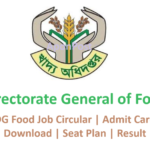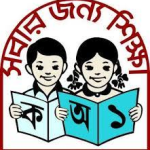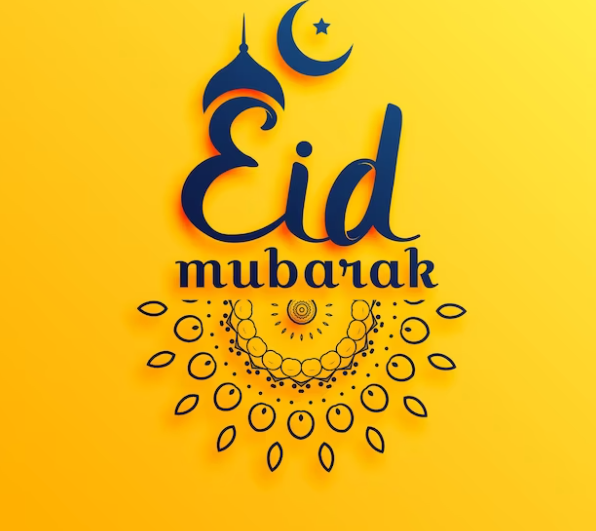Eid ul Fitr, also known as Ramadan Eid, is one of the most significant and joyous festivals celebrated by Muslims around the world. It marks the end of the holy month of Ramadan, during which Muslims observe fasting, prayer, and reflection. Eid ul Fitr is a time of renewal, gratitude, and celebration, as Muslims come together with their families, friends, and communities to commemorate this auspicious occasion.
The Meaning and Significance of Eid ul Fitr
Eid ul Fitr, which means “Festival of Breaking the Fast,” is a time of immense joy and gratitude for Muslims. It is celebrated on the first day of Shawwal, the tenth month of the Islamic lunar calendar, following the sighting of the new moon. The end of Ramadan, a month of fasting from dawn to sunset, is marked by the sighting of the crescent moon, which signals the arrival of Eid ul Fitr.
Eid ul Fitr holds profound significance in the Islamic faith. It is a time of spiritual rejuvenation, as Muslims reflect on their month-long journey of fasting, prayer, self-control, and self-reflection during Ramadan. It is a time to express gratitude to Allah (God) for the blessings received and seek forgiveness for any shortcomings. It is also a time to strengthen family bonds, promote unity, and extend acts of kindness and charity towards those in need.
Preparations for Eid ul Fitr
As Eid ul Fitr approaches, Muslims engage in various preparations to make the festival a memorable and joyous occasion. The preparations often begin with a thorough cleaning of the home, symbolizing the renewal of the heart and mind. Muslims also purchase new clothes, decorate their homes with lights and colorful ornaments, and prepare special festive dishes to share with family, friends, and neighbors.
In addition to physical preparations, Muslims also engage in spiritual preparations for Eid ul Fitr. They engage in additional acts of worship, such as offering voluntary prayers and reciting special supplications. They also give Zakat al-Fitr, a mandatory act of charity, which is given before the day of Eid ul Fitr to purify the fast and ensure that those who are less fortunate can also partake in the festivities.
Eid ul Fitr Traditions and Celebrations
Eid ul Fitr is a time of joyful celebrations, and Muslims engage in various traditions to mark the occasion. The day typically begins with Muslims waking up early, taking a ritualistic bath, and dressing in their finest clothes. Many Muslims also apply henna on their hands as a traditional form of adornment.
Muslims then head to mosques or designated places for Eid prayers, which are conducted in congregation. The Eid prayer is a special congregational prayer consisting of two units (Rak’at) and is usually led by an Imam. Muslims offer prayers while standing, bowing, and prostrating in gratitude to Allah for His blessings and mercy.
After the prayers, Muslims greet each other with “Eid Mubarak,” which means “Blessed Eid,” and exchange hugs, handshakes, and gifts as a sign of affection and unity. It is common to see children and adults alike dressed in their best clothes, smiling, and sharing the joy of the festival.
One of the highlights of Eid ul Fitr celebrations is the festive feasts that take place in Muslim households. Families prepare elaborate meals, including traditional dishes and sweets, and invite guests to share in the festivities. It is a time of indulgence and enjoyment as families come together to enjoy delicious food, exchange stories, and strengthen their bonds.
Eid Ul Fitr – Fitra
giving Fitra is an important tradition associated with Eid ul Fitr. Fitra is a form of mandatory charity that is given by Muslims before the day of Eid ul Fitr as a means of purifying the fast and ensuring that those who are less fortunate can also partake in the festivities.
Fitra is calculated based on the value of staple food items, such as wheat, dates, barley, raisins, and cheese, and it is typically equivalent to the cost of these items for one person. It is recommended to give Fitra on behalf of oneself and on behalf of each dependent family member, such as spouse, children, and elderly parents, as a means of fulfilling this obligatory act of charity.
The act of giving Fitra holds immense significance in Islam as it embodies the spirit of generosity, compassion, and social responsibility. It serves as a reminder to Muslims to be mindful of those who are less fortunate and to share their blessings with others. Giving Fitra also promotes community cohesion and solidarity, as the collected funds are often distributed to those in need within the local community, allowing Muslims to support their fellow community members during the festive season.
The distribution of Fitra is usually done a few days before Eid ul Fitr, allowing the recipients to utilize the funds to purchase food, clothes, or other necessities to celebrate the festival. It is common for organizations, mosques, and charitable institutions to collect and distribute Fitra on behalf of the community, ensuring that those in need receive the donations in an organized and fair manner.
In addition to Fitra, Muslims are encouraged to engage in other acts of charity, known as Sadaqat al-Fitr or Zakat al-Fitr, during the month of Ramadan. These acts of charity serve as a means of purifying the soul, seeking forgiveness, and showing compassion towards those in need. They also foster a sense of gratitude and humility among Muslims, reminding them of the importance of giving back to the community and helping those who are less fortunate.
In conclusion, giving Fitra is an important tradition associated with Eid ul Fitr, emphasizing the values of generosity, compassion, and social responsibility in Islam. It serves as a means of purifying the fast, promoting community cohesion, and ensuring that those who are less fortunate can also partake in the festivities. As Muslims come together to celebrate Eid ul Fitr, they not only rejoice in the blessings and joys of the festival but also extend acts of charity to share their blessings with others, embodying the true spirit of Eid ul Fitr.
Eid Ul Fitr SMS (Short Messaging Service)
Here are some Eid Ul Fitr SMS (Short Messaging Service) that you can use to wish your friends, family, and loved ones on the occasion of Eid Ul Fitr:
“Wishing you a joyous Eid filled with happiness, love, and blessings. Eid Mubarak!”
“May this Eid bring peace, prosperity, and success to your life. Eid Mubarak to you and your family!”
“On this auspicious occasion of Eid, I pray that Allah showers his choicest blessings upon you and your loved ones. Eid Mubarak!”
“As we celebrate Eid, let’s remember the less fortunate and extend a helping hand to those in need. Eid Mubarak!”
“Eid is a time to come together and celebrate the joys of life. May this Eid be filled with laughter, warmth, and love. Eid Mubarak!”
“May Allah accept your prayers, forgive your sins, and bless you with happiness and prosperity. Eid Mubarak!”
“Wishing you a day filled with joy, laughter, and cherished moments with your family and friends. Eid Mubarak!”
“May the spirit of Eid bring peace, harmony, and happiness to your life. Eid Mubarak to you and your loved ones!”
“Eid is a time to rejoice and be grateful for the blessings in our lives. Wishing you a blessed and joyful Eid. Eid Mubarak!”
“Sending you warm wishes on this special day. May Allah’s blessings be with you always. Eid Mubarak!”
Feel free to use these Eid Ul Fitr SMS to convey your heartfelt wishes and spread the joy of Eid with your near and dear ones. Eid Mubarak!









